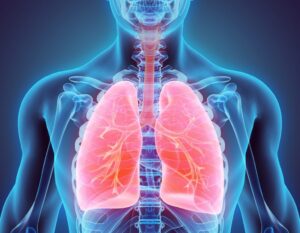Sleep Study / Polysomnography (Sleep Study)
Home / Dr. Kushal Chidgupkar
OUR SERVICES
Chest Physician
Best Chest physicians Dr. Kushal, often known as respiratory physicians or pulmonologists, are the consultants/specialists in this field. Diseases of the respiratory system (nose, throat, windpipe, lungs, chest wall, etc.) Are treated by the department.
A pulmonologist is a medical professional who identifies and treats respiratory disorders. These medical professionals may also be referred to as chest doctors, lung specialists, or lung doctors.
Typical Conditions Of The Respiratory System
- Chest or Lung Infections
Typical cold: a respiratory tract infection is what causes a typical cold. It produces a sore throat and runny nose by constricting and inflaming the nasal passages. A low-grade temperature, headache, cough, and muscle aches are some other symptoms. One of the 200 viruses that attack the upper respiratory tract is the cause of common colds. Adenoviruses, coronavirus, influenza a and b, and rhinovirus are a few prevalent strains. The virus can be transmitted by inhaling airborne droplets from an infected person’s coughs or sneezes, sneezing, touching contaminated surfaces, or direct contact with an infected person’s saliva or mucus from their nose or mouth.
A case of pneumonia:– a lung infection called pneumonia can be caused by a fungus, bacterium, mycobacteria, or virus. It is frequently caused by viruses and bacteria, but fungi can also be the culprit. Chest pain or tightness, fever, chills, coughing up green or yellow mucus, and trouble breathing are all signs of pneumonia. In addition to disorientation or confusion, sweating or shivering can also be symptoms of pneumonia. If you have any pneumonia symptoms, get in touch with manipal hospitals’ top pulmonologist in baner, pune, right away.
Covid-19:-a respiratory virus called covid-19 has shook the world. It was caused by a bat-borne coronavirus, which spreads from person to person through the air. Depending on the immunological system of the individual, the illness may be moderate or severe. Covid-19 symptoms include fever, coughing, and dyspnea. It could occasionally result in lung infections like pneumonia. Individuals suffering with underlying medical disorders such as asthma or chronic obstructive pulmonary disease (copd) are susceptible to experiencing severe symptoms. Although they are fewer in number, covid cases are still reported. Notwithstanding immunization, people with immune system disorders, cancer, or other illnesses may experience severe covid-19. While there are therapies that help reduce symptoms, vaccinations are the best form of prevention.
The Condition Of Bronchiectasis:- a long-term illness called bronchiectasis makes the bronchi dilated and mucus-filled. Although infections may be the cause, the illness is frequently idiopathic and has no recognized etiology. Breathing problems, chest pain, bloody coughing, wheezing, fever, weight loss, and night sweats are some of the symptoms.
Bronchitis:- the respiratory condition known as bronchitis results in inflammation of the bronchi, which are the tubes that convey air from the throat to the lungs. Irritation or infection can lead to pneumonia. Breathing difficulties, chest pain, and coughing are typical symptoms.
Influenza:- a viral infection that affects the respiratory system, influenza, also goes by the name “flu” and can include fever, headache, sore throat, muscle aches, and coughing. The flu can cause symptoms that resemble the common cold and can last for many days. Every kind of virus has numerous strains that are ever-changing. Every year, seasonal changes in the number of flu cases are seen. Getting vaccinated against influenza each year before flu season is the greatest way to avoid getting sick.
Tb, or Tuberculosis:- when a person with tuberculosis coughs, sneezes, or speaks, a pathogen known as mycobacterium tuberculosis spreads through the air and affects the lungs. In addition to causing a persistent cough with phlegm (mucus), fever, and weight loss, tuberculosis can impair breathing. The most prevalent type of tuberculosis is called latent tuberculosis infection (ltbi), which is contracted from an individual who has the disease but does not exhibit any symptoms. The kind and stage of tuberculosis in the body determines the course of treatment.

